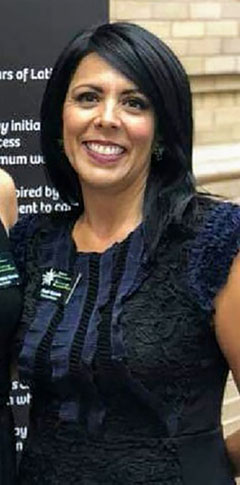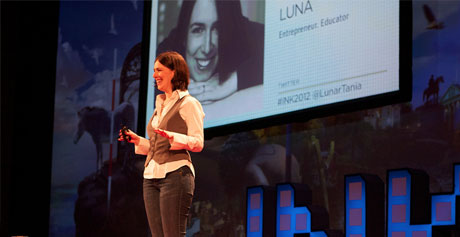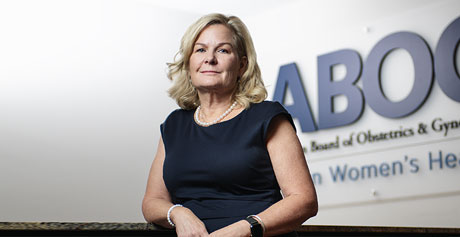She has Received Numerous Awards & Accolades for Her Leadership in Civic Engagement & Community Building. An Exclusive Interview with Color Latina Executive Director, Dusti Gurule
 Q: For those in our audience not familiar with Color Latina, tell us about the work the organization does and some of its programs.
Q: For those in our audience not familiar with Color Latina, tell us about the work the organization does and some of its programs.
DG: Colorado Organization for Latina Opportunity & Reproductive Rights (COLOR), was founded in 1998 to provide a voice for the Latina community and reshape the conversation about ‘choice’ to include the intersectionality of where communities of color live. Our programming includes leadership development for young people, policy advocacy, abortion destigmatization, civic engagement, and accountability work with decision-makers.
Q: Why was the organization started? How has it grown and changed over time?
DG: The organization was started by a group of Latinas, whom we refer to as our Madrinas in 1998. In 2003, the all-volunteer board hired me, as the first paid staff member. I served as the program manager for a year and a half. Since then the organization has had four executive directors, and I proudly returned to the organization, at the end of 2017, to serve as the fifth estate director. Over the years our work has maintained a community connection and continues to lift up and hold at the center of our work, those most marginalized in our community - young people, immigrants, and low-income communities of color.
Q: What has been your biggest accomplishment with Color Latina?
DG: After my first stint at COLOR, I went on to serve as the founding Executive Director for the Latina Initiative in 2004. Our mission was to create a space at the decision-making table for Latinas through policy advocacy and civic engagement. In 2006, I partnered with COLOR and the ED at the time, Jacy Montoya, to help integrate civic and voter engagement work within COLOR. The following year, I reached out to COLOR again, along with four other organizations, to launch Latino/a Advocacy Day, a statewide lobby and issue education event for Latinos throughout the state of Colorado.
This coming year, we will celebrate our fifteenth anniversary for LAD. This event, along with our expanded policy work, has catapulted COLOR as a key player and constituent for state-level elected representatives. Naturally, this work, coupled with our civic engagement work as a key messenger and voice for our community, led to the launch of our C4 arm, COLOR Action Fund in 2018.
The third partnership between Latina Initiative, under my leadership, and COLOR came in 2008, where we co-created Latinas Increasing Political Strength (LIPS), a leadership program for Latinas aged 16 to 21, where they learn the tools and skills needed to become reproductive justice advocates. COLOR took over leadership of the LIPS program in 2011 when the Latina Initiative closed its doors and this year, we celebrated eleven years of the program!
Q: What is it you like to say to potential donors and volunteers?
DG: COLOR is the messenger for the Latina community in Colorado. Our work to engage and be a trusted messenger to our community is key and critical, particularly when it comes to talking about the need for barrier-free, supported, and safe abortion care. As critical as this election is for our community, state, and world, it is important that we are prepared to provide the information, resources, and support needed to vote all the way down the ballot in the upcoming election. Our community understands that leadership matters, that our voice matters and that we elect candidates who will not continue to harm our families and communities. It is important that our community votes no on harmful, confusing bans on our decision making.
Q: What’s the best advice you’ve ever received?
DG: The work to build and spread justice is a marathon, not a sprint. Also, to trust my intuition and remember that the relationships with my family and chose community are critical to my life fulfillment.
Q: Can you share which woman inspires you and why?
DG: My mother, Cecilia Apodaca. She is the seventh child of fifteen and although she grew up very poor and was unable to finish high school because she needed to care for her younger siblings, she went on to achieve an associate degree in community health outreach. She is a symbol of strength, cultural pride, humor, and the importance of family for not just me and my sibling for our extended and chosen family.
Q: What are some of the challenges you feel women face today?
DG: Many women have broken barriers and have provided pathways for others. The fact that we have our first woman vice-presidential candidate is amazing but also illustrates that we as a society have a long way to go. Women continue to be held to different and unfair standards than men. We see this in the ever-present pay gap, in the continued misogyny spouted by the current president, and in that lack of safety that many transgendered womxn experiences; that many of whom have died from.
Q: What advice would you give to young women who want to pursue a career with a nonprofit?
DG: Spend time learning about the history of the city/state where you plan to work. Learn about the history and context of the most marginalized communities. Know them. Relationships, trust, and intentionality are key to long term community building, which is one of the many roles I believe nonprofit should play. Further, think more broadly about systems and policy change. Work to create long term sustainability and change how and who does the work for our communities.
Q: If someone wrote a biography about you, what do you think the title would be?
DG: Good question. Chicana on a mission to foster true representative decision making and democracy.
Four Things About Founder & Executive Director Dusti Gurule
1. Favorite type of food to eat when you dine out?
Sushi. I’ve mastered Mexican/Chicano food so when I go out to eat, I enjoy what I can’t cook myself.
2. If you could go back in time to change one thing, what would it be?
I would have taken financial literacy courses and learned the pros/cons of credit cards and the importance of saving.
3. What app can’t you live without?
If texting is considered an app, I’d say that.
4. What’s your favorite city and why?
Bar Barcelona, Spain. I love the art, architecture, history, food, culture, and tempo of life there.

